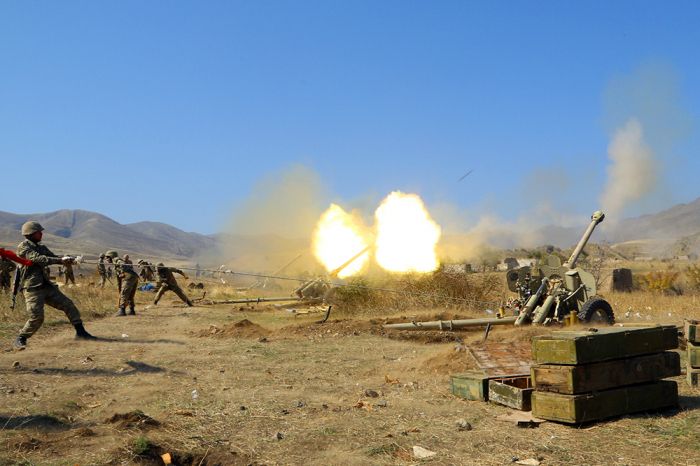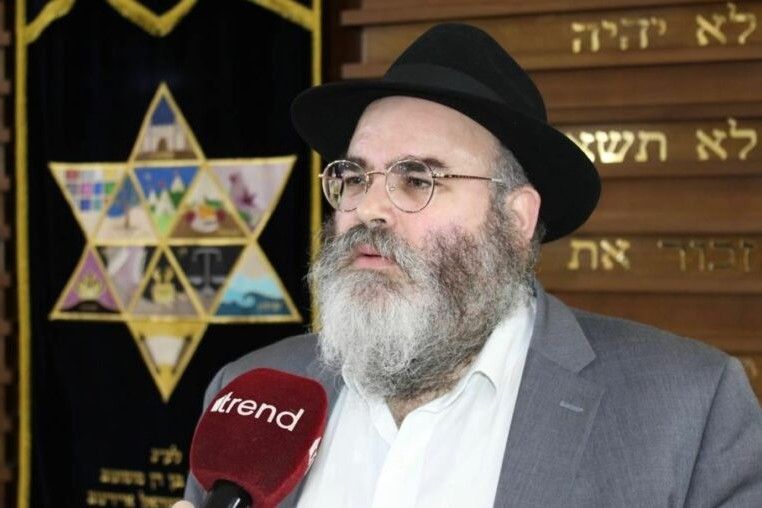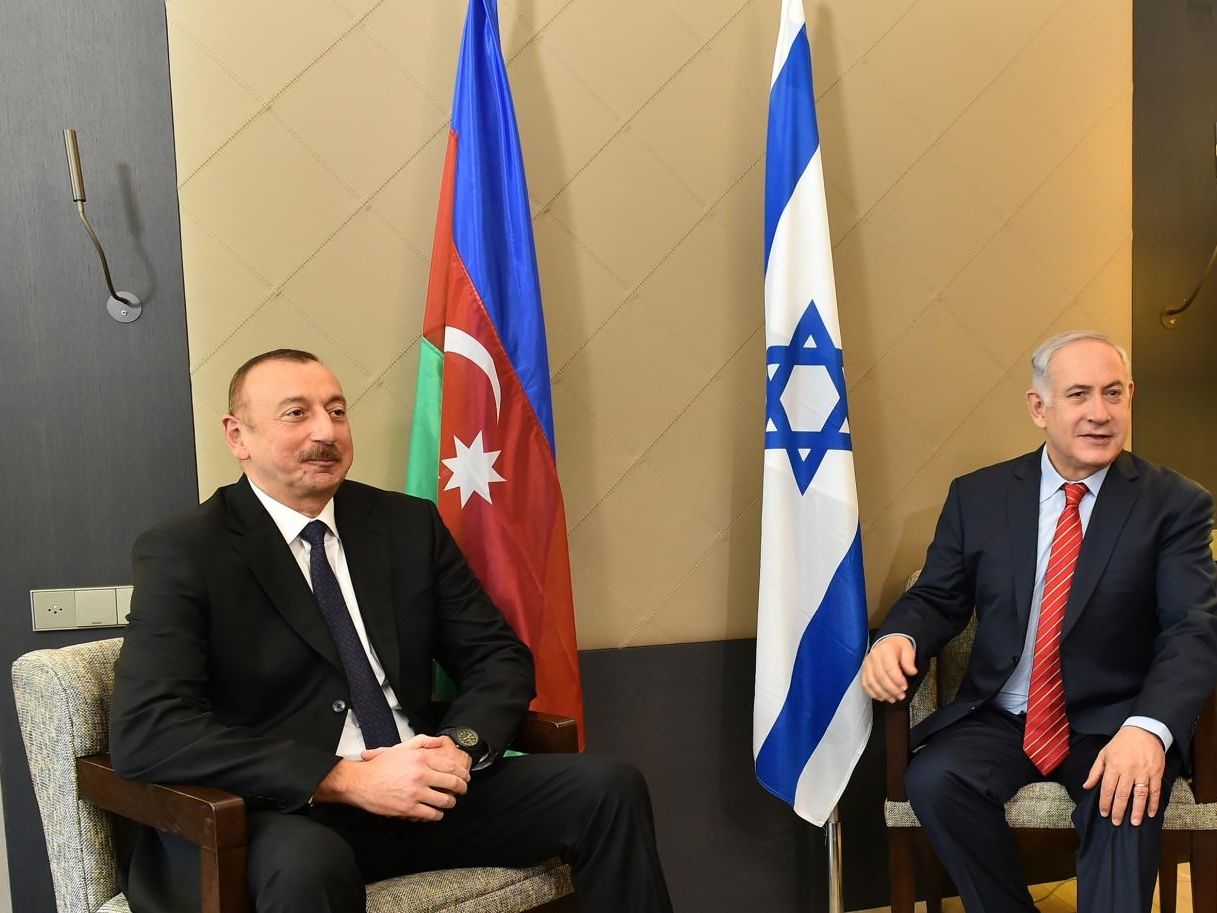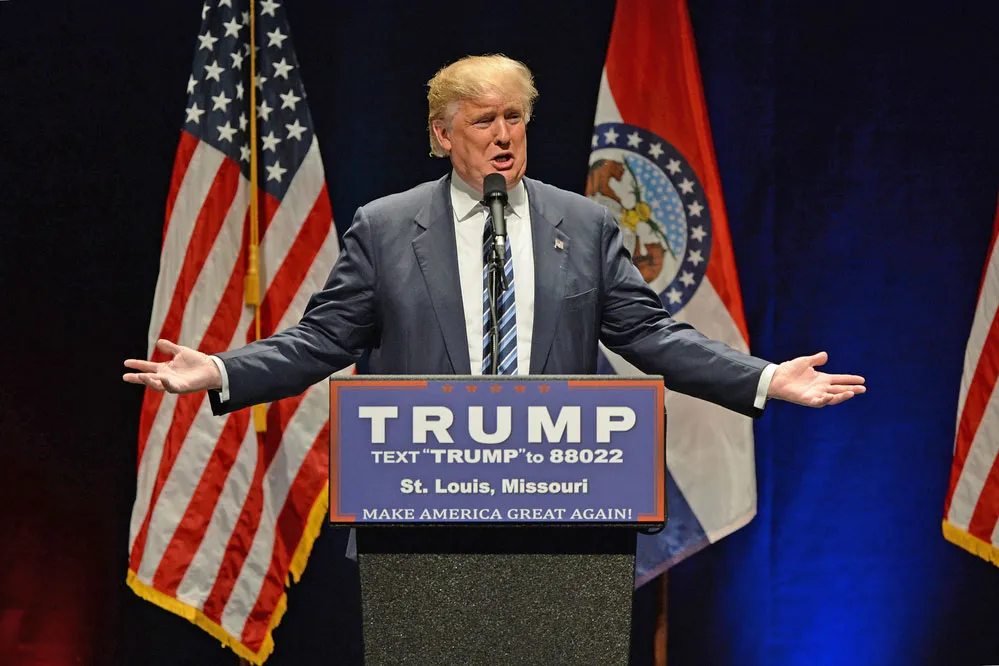Shortly after the historic announcement in March that Armenia and Azerbaijan had agreed the terms of a peace treaty, US President Donald Trump’s special envoy Steve Witkoff arrived in Baku.
It was not immediately clear why he was there — Witkoff’s primary assignment appears to be attempting to mediate peace between Russia and Ukraine, which he has so far failed to achieve, and neither Witkoff nor other officials from the Trump administration are thought to have participated in hammering out the details for the Armenia–Azerbaijan deal.
Days later, Trump’s then–National Security Advisor, Mike Waltz, and Azerbaijani presidential aide Hikmat Hajiyev held a phone call, but Waltz’s comments on the talks were also scant on details.
Conflict in the South Caucasus must end. I spoke this week with Mr. Hikmet Hajiyev, the national security advisor for President Aliyev in Azerbaijan.
— Mike Waltz (@MikeWaltz47) March 16, 2025
We are pleased Azerbaijan and Armenia have taken a big step forward and agreed to a peace treaty. I told him we should…
Following this, a trip in May by Israeli Prime Minister Benjamin Netanyahu to Baku was announced, but as of August, has yet to actually come to fruition.
The renewed diplomatic efforts between the US and Azerbaijan, as well as Israel — which follow what Azerbaijani President Ilham Aliyev said was a low point for bilateral relations under President Joe Biden — appear to have limited connection to the country’s conflict with Armenia, the issue that has largely defined Azerbaijan’s international diplomacy for decades.
Rather, as illustrated by a flurry of op-eds from all sides and mutual diplomatic fawning between Israel and Azerbaijan, it appears to be connected to a growing trilateral alliance between the three countries, particularly vis-a-vis Iran.
Azerbaijan and Israel
Close ties between Azerbaijan and Israel date back decades, and at first, were largely based on mutual beneficial interests.
In a leaked diplomatic telegram from 2016, Aliyev likened the bilateral relations between Azerbaijan and Israel to an iceberg — 9/10ths of their ties are below the surface.
Israel has long imported a significant share of its oil from Azerbaijan, something which increased further after the Baku–Tbilisi–Ceyhan pipeline went online in 2006.
By 2023, Azerbaijan was by far the largest exporter of oil to Israel, reaching some $1.4 billion a year, more than double the next largest exporter, Gabon, at $680 million. In total, Azerbaijan supplies around 65% of Israel’s oil, making it an indispensable energy partner.
During roughly the same period, Israeli arms exports to Azerbaijan also increased. According to data from the Stockholm International Peace Research Institute (SIPRI), the figure reached up to 69% of all arms imported into Azerbaijan from 2016–2020 — right before the Second Nagorno-Karabakh War. While not constituting a majority, Israeli arms exports to Azerbaijan were roughly 17% of its total arms exports during that same time period, representing a significant economic opportunity.
Russia continued to be Azerbaijan’s largest arms supplier over the decade from 2010–2020, but the more advanced Israeli weapons are widely believed to have given Baku the upper hand over Armenia in both the Second Nagorno-Karabakh War and the final lightning offensive in 2023 that ended with Nagorno-Karabakh’s capitulation and exodus of virtually all of the ethnic Armenian population. At the time, Armenia’s missile and drone arsenal came almost entirely from Russia, while Azerbaijan had more modern supplies, largely from Israel and Turkey. The drones in particular are thought to have given Azerbaijan a decisive advantage in the 2020 war.

But these ties are not just based on mutually beneficial cooperation in energy and defence.
‘Azerbaijan needs Israel to balance Iran, connect with the US, and access high-tech weaponry and intelligence’, independent Azerbaijani researcher Shujaat Ahmadzada tells OC Media, ‘whereas Israel needs Azerbaijan for its broader engagement with the Muslim world and, to a degree, for energy supplies’.
At a time when there is significant conflict between Israel and much of the Muslim world, there has been a concerted top-to-bottom effort from both countries to highlight that the alliance represents a rare example of friendship between Israel and a Muslim majority country.
‘Azerbaijan clearly takes supporting its Jewish community seriously and not just for propaganda purposes’, Joseph Epstein, a senior fellow at the Yorktown Institute, tells OC Media. ‘Very early on, Baku returned Jewish buildings seized by the Soviets to their rightful owners, restored decrepit synagogues, and allowed Jews to study Hebrew and openly identify with the state of Israel’.
In 2024, popular bloggers Aija Mayrock and Nas Daily (Nusseir Yassin, a Palestinian-Israeli YouTuber) released a video entitled ‘the country of coexistence’ about their trip to Azerbaijan, which highlighted the supposed harmony between Jews and Muslims in the country.
Mayrock also made a separate video on Instagram about the Jews of Azerbaijan, which she called ‘one of the most isolated Jewish communities in the world’.
‘Muslims and Jews have lived uninterrupted and in peace in this country for thousands of years’, she said.
More recently, Israeli-American journalist India Naftali shared a similar video about her trip to the town known as Red Village, which has a majority Jewish population. Naftali described it as the ‘last remaining Jewish village in the world outside of Israel’.
While there is certainly a Jewish community in Azerbaijan, it numbers only a few thousand, far below its peak of 40,000 in Soviet times. As with other places in the former Soviet Union, including other Muslim majority countries such as Uzbekistan, the vast majority of Jews have left in the recent decades. In this regard, Azerbaijan’s remaining Jewish community, estimated to be around 6,000, is not particularly unique, nor is it especially isolated — neighbouring Iran, which is also one of Israel’s archenemies, has a larger Jewish population, roughly around 9,000.
Nonetheless, the Azerbaijani government has also used the presence of its small Jewish community to further its own narrative that it is a bastion of ethno-religious tolerance — as well as a rhetorical tool to bolster its information war against Armenia.
Prominent Baku Rabbi Shneor Segal, who coincidentally was the target of a failed Iranian-backed assassination attempt at an unspecified time, said that Armenia’s comparison of the Holocaust to the expulsion of Nagorno-Karabakh Armenians was ‘simply wrong’ in a 2023 interview with the Azerbaijani pro-government media outlet Aze.media.
‘To say such things about Azerbaijan […] the Holocaust issue in general […] Just look at the situation, how people are treated here. To speak such falsehoods is demagoguery’.
‘Azerbaijan is always on the side of peace. Today, Azerbaijan is a model of tolerance, coexistence of people from different nationalities, different faiths’, Segal added.

The sentiment has also been echoed by Azerbaijani writers in Israeli media.
‘Upon arrival in this country, you might discover some basic facts about Azerbaijan that apparently do not exist in this combination anywhere else. First, it is a Muslim democratic nation. Second, there has never been a pogrom in Azerbaijan. There is simply no antisemitism’, wrote Said Musayev in the Jerusalem Post in 2016.
More recently, it was announced that Azerbaijan would host the biennial Conference of European Rabbis in November — a diplomatic overture that did not go unnoticed in Israel.
From Baku’s perspective, Azerbaijan has also been able to wield its alliance with Tel Aviv as a diplomatic tool, and an opportunity to act as a mediator between Israel and Turkey.
Recently, Aliyev hosted bilateral talks between Israeli and Turkish officials as part of an attempt to prevent their conflicting interests in Syria from erupting into shooting.
According to the Times of Israel, Netanyahu’s planned trip would have also been focused on Turkey, as well as ‘plans to formally connect Azerbaijan with the Abraham Accord framework’, a 2020 US-brokered agreement that normalised relations between Israel and several Muslim-majority countries. It is unclear exactly what that would entail, as Israel and Azerbaijan already have diplomatic relations. US talk about the Abraham Accord inclusion was then revived in August.
However, just days before his scheduled arrival back in May, Netanyahu’s trip was abruptly cancelled, with conflicting accounts as to why — some media outlets reported that Turkey had decided not to allow Netanyahu to use its airspace for the flight, which would have added several hours to the journey, while others said that more pressing regional developments had forced him to reschedule.

The last minute cancellation raised some questions about the importance that Netanyahu really put on this trip — the visit was originally planned for four days, so it is unclear why an additional few hours tacked on to either leg of the journey should have resulted in the entire trip being called off. Moreover, if it was true that the cancellation was due to Turkey’s refusal to allow the plane into its airspace, it is also unclear why postponing the trip would alter Turkey’s logic.
Nonetheless, it shed light on an issue complicating Baku’s relationship with Tel Aviv — Israel’s brutal war in Gaza. The conflict has caused Israel to become increasingly isolated in the West and upended the fragile process of normalisation between Tel Aviv and several key governments in the Middle East, namely Saudi Arabia.
‘As strong as Azerbaijani–Israeli ties may be, Azerbaijan cannot afford to isolate itself from the wider Muslim world — especially with regard to countries like Saudi Arabia and Pakistan, with which it has long enjoyed, and continues to enjoy, diplomatic and other forms of support’, says Ahmadzada.
The Iran factor
If relations between Israel and Azerbaijan really do resemble an iceberg, then one issue — Iran — likely constitutes a considerable amount of what is below the surface.
Since the 1979 Islamic revolution, Iran has remained Israel’s premier archenemy, a position it has maintained despite other seismic geopolitical changes.
Azerbaijan’s relationship with Iran is much less tense, in part because of geography — it shares a long southern border — but it also has significant issues, much of which is connected to the presence of a substantial minority of ethnic Azerbaijanis in Iran — by some estimates, the population numbers as high as 24 million, or up to 24% of the entire country. If the figures are accurate, it would mean there are twice as many Azerbaijanis in Iran as there are in Azerbaijan. The rights of ethnic Azerbaijanis in Iran, such as the ability to be educated in their own language, are severely curtailed. While there is some cross-border ethnic solidarity, the two populations have remained separated for centuries, since a series of wars between the Russian and Persian empires ended in 1828.
As a result, the portion of Azerbaijan that fell under Russian, and then Soviet control, developed in a significantly different direction, becoming much more Westernised and secular than its neighbours to the south — differences which have become even starker in recent decades.
While there are some irredentists on both sides, the spectre of a unified Azerbaijan is not a widely held belief, and even if there were strong feelings on either side of the border, it would be difficult to imagine a consensus on where a possible capital would be.
Nonetheless, the border issue has cropped up from time to time, including during a recent visit by Iranian President Masoud Pezeshkian to Azerbaijan.

Pezeshkian, who is an ethnic Azerbaijani himself, and speaks the language, conducted the vast majority of the official visit in his native language, Farsi. But in one moment that was widely disseminated on social media, he read a poem in the Azerbaijani language that told the story of the two brothers caught on either side of the Russian Empire’s border with Persia. The narrator of the poem speaks from Iran but laments his grief at being separated from his homeland of Azerbaijan. While some interpreted Pezeshkian’s selection of the poem to be a way for him to emphasise the shared linguistic and cultural connections, others viewed it as a subtle reminder that Iran has a say in the fate of its Azerbaijani population.
A similar dynamic was repeated during a conference in Stepanakert in July 2025, when Pezeshkian, Aliyev, and Turkish President Recep Tayyip Erdoğan spoke to each other in their respective languages, being able to fully understand each other.
But it is unclear how important such issues really are, compared to the true third rails — Azerbaijan’s relationship with Israel, and Iran’s relationship with Armenia.
Tehran has long feared that Azerbaijan could be a staging ground for Israeli military operations against Iran, and has already accused Baku of hosting Israeli intelligence agents. These concerns grew exponentially during and after the 12-day war between Israel and Iran in June.
Iranian officials openly alleged that Israel had used Azerbaijani territory to strike targets in Iran, which was strongly denied by Baku.
At the same time, Azerbaijani pro-government media became increasingly hostile to Iran, with the outlet Caliber claiming that Iran’s Supreme Leader Ali Khamenei was the driving force behind the country’s anti-Azerbaijani actions.
In addition, the regional situation is further complicated by Iran’s support for Armenia, Azerbaijan’s primary geopolitical foe.
Although Iran opted not to intervene during the Second Nagorno-Karabakh War or subsequent clashes, including the final 2023 offensive, Tehran has repeatedly warned that it would not allow Azerbaijan to seize territory internationally recognised to be Armenian. The threat has been widely seen to be in response to an Azerbaijani proposal for the so-called ‘Zangezur corridor’, an irredentist concept to connect mainland Azerbaijan to its exclave of Nakhchivan through Armenian territory.
There nonetheless still appears to be some wiggle room, as an alternate route through Iran instead has been floated, with some construction actually beginning on the route.
Amidst the backdrop of Israel’s growing global isolation related to the war in Gaza, there has been increasingly pointed criticism of Israel on popular Armenian social media accounts. However, in contrast with the bulk of current criticism of Israel, the negative comments often relate more to critiques of Israel’s relations with Azerbaijan and the alleged poor treatment of the small but ancient Armenian minority in Jerusalem.
At the same time, Epstein told OC Media that ‘there is some pushback from Israel’s Armenian community and a few activists, but it’s negligible’.
What does the US want?
While the complexities of the relations between Azerbaijan and Israel — and Armenia and Iran — have been a consistent fixture of discussions about the conflict, the role of the US as a third party in the Baku–Tel Aviv alliance is relatively new.
For much of the 1990s, Washington appeared more sympathetic to Yerevan, having voted to block aid to Baku in 1992. Throughout the first decades of independence, Azerbaijan was the only post-Soviet country that received no aid from the US.
The Israel factor, coupled with Washington’s increasingly hawkish stance on Iran, appears to have shifted the calculus.
As Israel and Azerbaijan became closer, the pro-Israel lobby in the US also began to advocate on Baku’s behalf, leading to the eventual establishment of a waiver on the ban of US aid.

In turn, one of Israel’s primary goals vis-a-vis Azerbaijan is ‘to bring the US into the picture, which would act as a much more serious deterrent to Iran’, says Epstein.
A simultaneous effort is being made by Azerbaijan, Ahmadzada says.
But Ahmadzada argues that there are limits to how far that direct trilateral cooperation can go.
‘I do not expect anything substantive to emerge from this trilateral partnership, even if it materialises’, he says.
‘I don’t see the US committing to Azerbaijan’s defence in the practical sense that an alliance entails, as it does with Israel and the Gulf countries. Even if such a partnership is established, it is likely to be largely performative’.
And for all of the posturing, Baku is far from openly declaring Tehran to be an outright foe — as evidenced by Pezeshkian’s visit to Azerbaijan.
Even as the conflict between Israel and Iran has grown hotter, to the point where there was an exchange of missiles and drones in 2024 and again during the all-out war in 2025, Azerbaijan has stayed out of the picture.
‘Azerbaijan cannot afford to become a battleground in a potential joint US–Israeli war against Iran. This sets a clear limit to the depth of Baku’s partnership with Israel’, Ahmadzada says.
‘For years, Azerbaijan has avoided allowing its airbases to be used for such purposes, and it is likely to continue resisting such involvement’.
While the respective bilateral alliances between the US and Israel, as well as Azerbaijan and Israel, have certainly reaped benefits, the larger project of a three-way alliance mostly exists on paper.
Despite the statements and the effort, actually getting Azerbaijan to join a united front against Iran — perhaps the most desired outcome from both Tel Aviv and Washington — has not happened and is probably unlikely to emerge in the near future.












